#JapaneseLanguage
Text
Inarizaki's Kansai Dialect
Japanese Dialects are split into Eastern and Western, with the Standard Japanese dialect being Eastern (Kanto region) and Kansai region dialect being Western (eg. cities of Osaka and Kyoto, and of course Hyogo prefecture- where Inarizaki is from). The pitch, tone, and stressing of the sounds is different from standard Tokyo Japanese so you should be able to hear the difference in how the Inarizaki members speak even if you don't know any Japanese.
just in case yall didn't know, Suna is the only member on the team that does not use Kansai dialect as he was scouted from Aichi prefecture, so he basically just speaks in the standard dialect
Some linguistics of the dialect that may or may not be heard in the show:
"ya" ending vs the standard "da" ending.
Kore kirai ya. vs Kore kirai da. (I hate this.)
the use of the "h" sound instead of "s"
Han vs standard san (honorific suffix, not really used anymore)
Negation suffix "-hen" instead of the standard "-nai".
Taichou kanri dekitehen koto, homen na. vs Taichou kanri dekitenai koto, homen na. (Don't compliment him when he's obviously not taking care of himself.)
verb "oru" vs the standard "iru".
Dareka ga mitoru yo, Shin-chan. vs Dareka ga miteiru yo, Shin-chan.
(Someone's always watching, Shin-chan.)
verb "temau" vs standard "teshimau"
Naitemau yaro! vs Naiteshimau darou! (You're gonna make me cry!)
Negation "suru" verb becomes "sen" instead of "shinai".
Ki ni sen dee. vs Ki ni shinai yo. (Don't worry about it.)
Some words that are different in Kansai dialect:
Honto becomes Honma (really)
Sodane becomes Seyade (thats right)
Nande becomes Nandeyanen (why)
Totemo becomes Meccha (very)
ii becomes ee (good)
"aho" means stupid in Japanese, but apparently in the Kansai dialect calling someone an "aho" is actually a compliment?! (even though it has the same definition)
Overall, I could watch the Karasuno vs Inarizaki episodes a hundred times just to listen to Inarizaki's dialect and how different it sounds to the rest of the characters in the entire show.
Although Karasuno speaks in the standard dialect (which isn't very strange since Miyagi is a suburb close enough to the Kanto region), theres a few lines here and there where one of them says something using the Tohoku dialect (the dialect that would be used often in the rest of Tohoku, such as Aomori).
But that can be a separate post for another day!
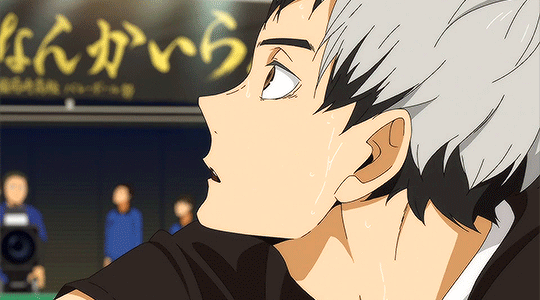
(I especially like Kita's voice, thank you Nojima Kenji.)
#haikyuu#inarizaki#japanese linguistics#japaneselanguage#japanese#kansai#kita shinsuke#miya atsumu#miya osamu#miya twins#suna rintarou#aran ojiro#ojiro aran#akagi michinari#anime#anime and manga#linguistics#dialect#kenji nojima#japanese language#karasuno#tokyo
353 notes
·
View notes
Text
桜梅桃李 (ō-bai-tō-ri) “never compare yourself to others”
Due to the popularity of this previous post, I decided to have another go at this famous Japanese 4-character-idiom.

桜 = cherry (sakura)
梅 = apricot (ume)
桃 = peach (momo)
李 = plum (sumomo)
Each of these beloved trees blooms in its own time and in its own unique way.
#japan#japanese#japaneseculture#kanji#japaneselanguage#japaneseart#japaneseartwork#learningjapanese#japanese langblr#japanesephilosophy#japanesedesign#japanesequote#inspiration#motivation#dailyinspiration#書道#書道アート#dailyquotes#japanesecalligraphy#calligraphy#kanjiart#calligraphyart
156 notes
·
View notes
Photo
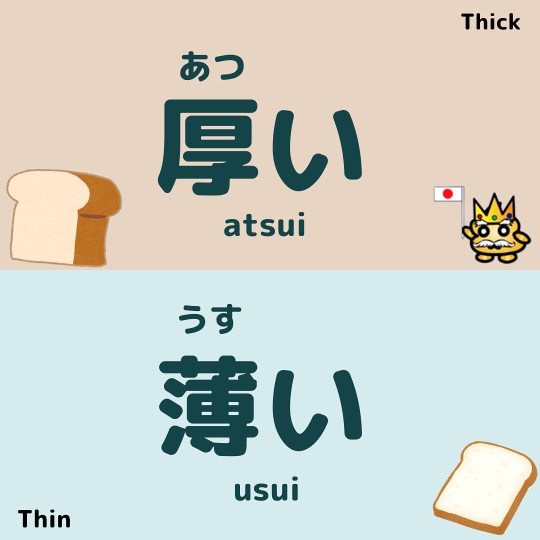
Thick in Japanese is 厚い(Atsui) 🍞 Thin in Japanese is 薄い(Usui) 👚 Do you have any Japanese questions? It is the perfect time to start learning Japanese🇯🇵 Take Japanese lessons online with our professional Japanese teachers \(◕ω◕)/☆ We can teach you Japanese step by step and make the customized lesson for you. You can take a FREE trial lesson here now🌸👉 http://kakehashijapan.com #learnjapaneselanguage #studyingjapanese #Japanesevocabulary #nihongo #learnjapanese #studyjapanese #kanji #Japanese #Japanesephrase #learningjapanese #japanesewords #Japaneselearner #japanese #Japan #japaneselanguage #japaneselessons #japaneselesson #learnjapanese #japaneseteacher #japaneseclass #japanesephrases #JLPT #japaneselanguage #learningjapanese #日本語 #日本語勉強中 #日本語勉強 #🇯🇵 #jlptn5 #jlptn4 #jlpn3 #jlptn2 #kanjistudy https://www.instagram.com/p/CpZFFr3SONg/?igshid=NGJjMDIxMWI=
#learnjapaneselanguage#studyingjapanese#japanesevocabulary#nihongo#learnjapanese#studyjapanese#kanji#japanese#japanesephrase#learningjapanese#japanesewords#japaneselearner#japan#japaneselanguage#japaneselessons#japaneselesson#japaneseteacher#japaneseclass#japanesephrases#jlpt#日本語#日本語勉強中#日本語勉強#🇯🇵#jlptn5#jlptn4#jlpn3#jlptn2#kanjistudy
72 notes
·
View notes
Text

What's your ikigai? 🌟🧘♂️ Here's ours: helping millions of people learn new languages. ❤️🌎
#mondly#languages#languagelearning#learnlanguages#japanese#learnjapanese#japaneselesson#didyouknow#japaneseforbeginners#japaneselanguage#japaneseteacher#japaneseclass#japaneselearning#japaneseonline#ikigai#reasonforbeing#nihongo
22 notes
·
View notes
Text
50 Japanese proverbs along with their English translations:
一寸先は闇。(Issun saki wa yami.) Translation: "One inch ahead is darkness."
石の上にも三年。(Ishi no ue ni mo sannen.) Translation: "Even on a rock, it takes three years."
虎穴に入らずんば虎子を得ず。(Koketsu ni irazunba koji o ezu.) Translation: "If you do not enter the tiger's cave, you will not catch its cub."
出る杭は打たれる。(Deru kui wa utareru.) Translation: "The stake that sticks out gets hammered down."
虎の子を産んでも親は親。(Tora no ko o undemo oya wa oya.) Translation: "Even if a tiger gives birth to a cub, it is still a mother."
花より団子。(Hana yori dango.) Translation: "Prefer dumplings over flowers."
七転び八起き。(Nanakorobi yaoki.) Translation: "Fall down seven times, stand up eight."
猿も木から落ちる。(Saru mo ki kara ochiru.) Translation: "Even monkeys fall from trees."
馬の耳に念仏。(Uma no mimi ni nenbutsu.) Translation: "Buddhist sutras to a horse's ear."
雨降って地固まる。(Ame futte ji katamaru.) Translation: "After the rain, the ground hardens."
井の中の蛙大海を知らず。(I no naka no kawazu taikai o shirazu.) Translation: "A frog in a well does not know the great sea."
急がば回れ。(Isogaba maware.) Translation: "If you hurry, take the long way around."
目くじらを立てる。(Mekujira o tateru.) Translation: "To raise an eyebrow."
虫の知らせ。(Mushi no shirase.) Translation: "News from the bugs."
備えあれば憂いなし。(Sona e areba urei nashi.) Translation: "If you are prepared, you have nothing to fear."
馬鹿は死ななきゃ治らない。(Baka wa shinanakya naoranai.) Translation: "Stupidity cannot be cured unless you die."
起きて半畳寝て一畳。(Okite hantatami nete ichijo.) Translation: "Waking up is half the bed, sleeping is a full tatami."
継続は力なり。(Keizoku wa chikara nari.) Translation: "Continuation is power."
猿も木から落ちる。(Saru mo ki kara ochiru.) Translation: "Even monkeys fall from trees."
言わぬが花。(Iwanu ga hana.) Translation: "Silence is golden."
良薬は口に苦し。(Ryoyaku wa kuchi ni nigashi.) Translation: "Good medicine tastes bitter."
鳥なき里の蝙蝠。(Tori naki sato no koumori.) Translation: "In a village without birds, bats are great singers."
縁の下の力持ち。(En no shita no chikara mochi.) Translation: "The person behind the scenes who holds the power."
馬の耳に念仏。(Uma no mimi ni nenbutsu.) Translation: "Buddhist sutras to a horse's ear."
継続は力なり。(Keizoku wa chikara nari.) Translation: "Continuation is power."
石の上にも三年。(Ishi no ue ni mo sannen.) Translation: "Even on a rock, it takes three years."
人のふり見て我がふり直せ。(Hito no furi mite waga furi naose.) Translation: "Observe the behavior of others and correct your own."
高い山から落ちる石は重い。(Takai yama kara ochiru ishi wa omoi.) Translation: "A stone falling from a high mountain is heavy."
鶏口となるも牛後となるな。(Keikou to naru mo gyuugo to naru na.) Translation: "Rather than becoming the mouth of a chicken, become the tail of an ox."
空鶴も1枚や2枚。(Karatsuru mo ichimai ya nimai.) Translation: "Even a crane dances a step or two."
蛙の子は蛙。(Kaeru no ko wa kaeru.) Translation: "A child of a frog is a frog."
立つ鳥跡を濁さず。(Tatsu tori ato o nigosazu.) Translation: "A departing bird leaves no trace."
二兎を追う者は一兎をも得ず。(Nito o ou mono wa itto mo ezu.) Translation: "One who chases after two hares will not catch even one."
弘法にも筆の誤り。(Koubou ni mo fude no ayamari.) Translation: "Even Koubou made mistakes with his brush."
悪因悪果。(Akuin akka.) Translation: "Evil begets evil."
隣の芝生は青く見える。(Tonari no shibafu wa aoku mieru.) Translation: "The grass is always greener on the other side."
悪事千里を走る。(Akugoto senri o hashiru.) Translation: "Evil deeds run a thousand miles."
火のないところに煙は立たぬ。(Hi no nai tokoro ni kemuri wa tatanu.) Translation: "There is no smoke without fire."
弱肉強食。(Jakuniku kyoushoku.) Translation: "Survival of the fittest."
塵も積もれば山となる。(Chiri mo tsumoreba yama to naru.) Translation: "Even dust, when piled up, becomes a mountain."
意気地なし。(Ikujinashi.) Translation: "No fighting spirit."
逆境に勝つ者は逆境に強い。(Gyakkyou ni katsu mono wa gyakkyou ni tsuyoi.) Translation: "Those who win in adversity are strong in adversity."
転ばぬ先の杖。(Korobanu saki no tsue.) Translation: "A cane before you fall."
時は金なり。(Toki wa kane nari.) Translation: "Time is money."
後悔先に立たず。(Koukai saki ni tatazu.) Translation: "Regret does not come before."
三人寄れば文殊の知恵。(Sannin yoreba Monju no chie.) Translation: "When three people gather, there is wisdom."
乞食の馬鹿は乞食をする。(Kojiki no baka wa kojiki o suru.) Translation: "A beggar's fool begs."
頭隠して尻隠さず。(Atama kakushite shiri kakusazu.) Translation: "Covering the head but not the bottom."
千里の道も一歩から。(Senri no michi mo ippo kara.) Translation: "Even a journey of a thousand miles begins with a single step."
弘法にも筆の誤り。(Koubou ni mo fude no ayamari.) Translation: "Even Koubou made mistakes with his brush."
These proverbs reflect various aspects of Japanese culture, wisdom, and values.
#JapaneseProverbs#Wisdom#JapaneseCulture#JapaneseLanguage#Quotes#Sayings#TraditionalWisdom#LifeLessons#JapaneseHeritage#Philosophy#today on tumblr#JapaneseWisdom#JapaneseTraditions#EasternPhilosophy#CulturalProverbs#LanguageandCulture#JapaneseSayings#JapaneseInspiration#EasternWisdom#JapaneseQuotes#JapaneseIdioms#TraditionalJapaneseWisdom#JapaneseProverbsandSayings#JapaneseLanguageLearning#JapaneseCultureandTraditions#JapaneseLifestyle#JapaneseWisdomQuotes#JapaneseSayingsofWisdom#deep thoughts
12 notes
·
View notes
Text
The Ultimate Guide to Staying Motivated When Learning Japanese
What are some tips for staying motivated when learning Japanese?
Here are some tips for staying motivated when learning Japanese:
Set realistic goals. Don't try to learn too much too soon, or you'll get discouraged. Set small, achievable goals for yourself, and celebrate your successes along the way.
Find a learning method that works for you. There are many different ways to learn Japanese, so find a method that you enjoy and that fits your learning style. There are many free resources available online, as well as apps, textbooks, and even in-person classes.
Make it fun! Learning a new language should be enjoyable, so find ways to make it fun for yourself. Watch Japanese movies and TV shows, listen to Japanese music, or read Japanese books or manga.
Immerse yourself in the language. The best way to learn a language is to immerse yourself in it as much as possible. This means surrounding yourself with Japanese language and culture. You can do this by watching Japanese TV shows and movies, listening to Japanese music, reading Japanese books and manga, or even traveling to Japan.
Have a reason for learning Japanese. What is your motivation for learning Japanese? Do you want to travel to Japan? Watch Japanese anime or movies without subtitles? Talk to Japanese friends or family? Having a clear goal in mind will help you stay motivated when things get tough.
Don't be afraid to make mistakes. Everyone makes mistakes when they're learning a new language. It's important to not let this discourage you. Instead, view mistakes as an opportunity to learn and improve.
Find a language partner. Learning with a language partner is a great way to stay motivated and to practice your Japanese speaking skills. You can find language partners online or through local Japanese language schools or meetups.
Reward yourself. When you reach a learning goal, reward yourself with something you enjoy. This will help you stay motivated and to keep working towards your goals.
I hope these tips help you stay motivated when learning Japanese. Learn more about the Japanese language here! Tokyo International Education Institute
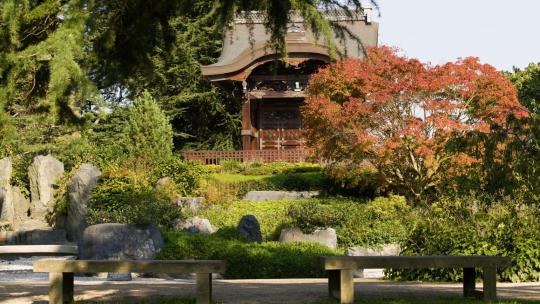
#study abroad#language#language courses#study in japan#learnjapanese#japaneselanguage#japaneselearning
7 notes
·
View notes
Text
instagram
🌿📔𝓕𝓸𝓻 𝓵𝓮𝓲𝓼𝓾𝓻𝓮 𝓸𝓻 𝓵𝓮𝓪𝓻𝓷𝓲𝓷𝓰ーRead Kiki’s Latest 🇯🇵 Entry at the Link Below:
☕https://wp.me/p9kdOE-3ku☕
・
・
♡嬉嬉の日記#0004|💮📔能力を伸ばす ||♡Kiki+Koko™の紀行文
🌿https://wp.me/p9kdOE-3ku🌿
・
・
📝 This Japanese journal entry can be read for learning or just for fun!
📮Either way, we hope you’ll join us on our journey
✉Subscribe to join the journey, and the many entries it will bring.
・
・
♡Kiki+Koko™: 🌿https://ieindigoeast.com/lovekikikoko🌿
・
・
・
・
📷@ieindigoeast × @kikikokonihongo
・
・
-🏷️ー
#japaneseteacher#japanese#japaneselanguage#travelogue#日本語#japanesegrammar#learnjapanese#studyjapanese#studygram#study#日本語勉強#japanesestudygram#japanesestudy#languagestudy#languagestudygram#blogger#blog#aesthetic#library#mechanicalkeyboards#keyboard#aesthetic#mechanicalkeyboard#studyaesthetic#books#langblr#japanese langblr#Instagram
3 notes
·
View notes
Text
youtube
今日の文法
〜によれば・によると
その話を知ったことろ
例文:妹によれば、妹の彼氏は歌がうまらしい。
〜を通して/通じて
経由して
例文:彼とは、インターネットを通じて知り合った。
〜から〜にかけて
時間や場所のだいたいの範囲
例文:今夜から明日の朝にかけて、雪でしょう。
#日本語能力試験#studyblog#studyspace#studywithme#polyglot#japaneselanguage#language exchange partner#language exchange#youtube#follow me#youtube channel#jlptn3#jlpt#japan#life in japan#kawaii life#kawaii aesthetic#日本語#日本語の勉強#Youtube
2 notes
·
View notes
Text
Nihongo Dreams Worksheets
I love exploring Japanese through a multi-literacy experiences. Check out this activity for ALL level of Japanese language learners. Let me know what you think.
I love exploring Japanese through a multi-literacy experiences. Regardless of your level of Japanese, you will be able to gain something in lessons based on the multi-literacy approach. This worksheet ties in with the Nihongo Dreams post from a few days ago. If you haven’t read about the BAKU yet, please start there.
Step 1: Watch this video from my post Nihongo Dreams
Step 2: Download & print…
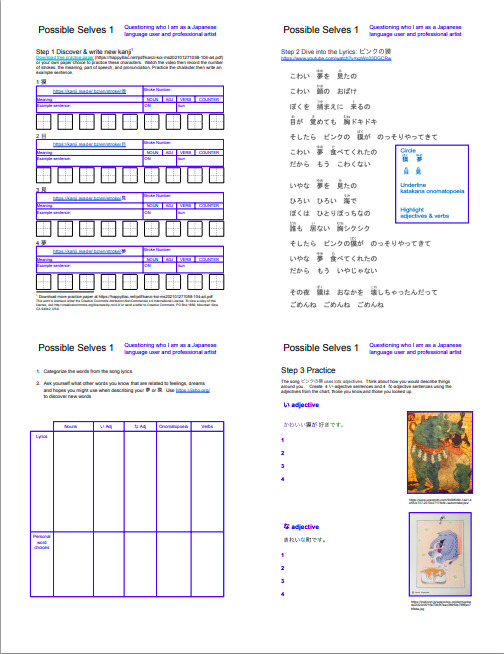
View On WordPress
#authenticjapanese#authenticresource#baku#beginningjapanese#blogaboutjapanese#intermediatejapanese#Japaenseblogs#japaneseblog#Japaneselanguage#japanesemusic#Japanesewords#Jisho#kanji#Kanjipractice#LanguagePortfolio#MSU#nihongo#NWU#possibleselves#proficiency#realjapanese#reflectivelearning#ReversoContext#Selfstudy#shibainu#日本語
16 notes
·
View notes
Text
Word of the day! - watermelon🍉
Słowo dnia! - arbuz🍉

#hiragana#japanese#japonski#japaneselanguage#katakana#learning#naukajaponskiego#japaneselesson#language#lesson#word of the day#word
13 notes
·
View notes
Photo
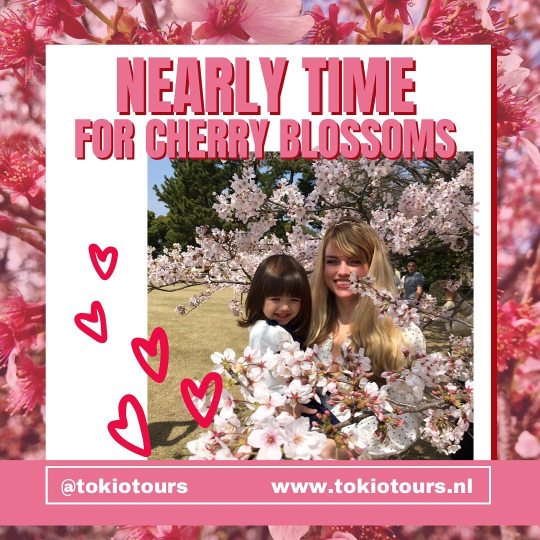
⏰⏰⏰IT’S ALMOST TIME! For cherry blossoms! 🌸 🌸 🌸 Here’s a photo of me and my wonderful daughter. Should you go to Japan in spring, our guides know the best cherry blossom spots in Japan! We have 10 years of experience conducting tours so you will be in great hands with us! Go to www.tokiotours.nl to book your local guide! #experience #dutch #guides #cherryblossom #cherryblossoms #flowerstagram #flowers #flowersofinstagram #flowerpower #flower #tours #toursandtravels #tourisme #touroperator #tourguide #guide #guidedtours #guides #guidedtour #japan #japaneselanguage #japanesespeaker #japantravel #japantrip #travel #travelguide #travelgram #experienced #experiences #tokyo (at Tokyo Japan) https://www.instagram.com/p/Cpal8ebqjxq/?igshid=NGJjMDIxMWI=
#experience#dutch#guides#cherryblossom#cherryblossoms#flowerstagram#flowers#flowersofinstagram#flowerpower#flower#tours#toursandtravels#tourisme#touroperator#tourguide#guide#guidedtours#guidedtour#japan#japaneselanguage#japanesespeaker#japantravel#japantrip#travel#travelguide#travelgram#experienced#experiences#tokyo
2 notes
·
View notes
Text
Haikyuu Miyagi Dialect
So I mentioned in my Inarizaki's Dialect post that Karasuno (and the other Miyagi schools) would actually speak in the Tohoku dialect (technically). They don't really speak in the dialect (they speak the standard dialect since they live in a suburb of Sendai, which is big enough and close enough to the Kanto region (tokyo)), but theres a few lines in which some characters do use a little bit of dialect. So here are some examples that I can think of:
disclaimer - im too lazy to properly rewatch the show so im going off memory, therefore i cant guarantee 1000000% accuracy
Sugawara, Terushima, Hinata, Oikawa, Asahi, and Iwaizumi seem to have the most noticeable Tohoku dialects from what I remember hearing??
Suga (and Terushima?) especially ends his sentences with "-yarube", "-dabe", "-be" quite often which is very miyagi of him, he definitely has the strongest dialect out of all of them.
A specific example from Asahi is him saying 俺は昨日残るって言ったべよ! (ore wa kino nokoru tte ittabeyo).
I also remember Iwaizumi saying バレーはコートに6人だべや! (bare wa koto ni roku nin dabe ya).
Hinata says 昼飯食うべ (hirumeshi kuu be) along with other tohoku-like sentences
and I think Daichi once says 一回聞いとくべ (ikkai kii toku be)
I also remember reading somewhere that "boke" (often used by Kageyama and Iwaizumi) is reminiscent of the Tohoku dialect but im honestly not too sure....?
OoOOOooOO i just remembered a specific dialectal word that Oikawa once uses towards Kageyama is おがったね (ogattane). he uses the verb おがる (ogaru) which means "to grow up" in tohoku dialect.
Ukai once uses いずそうな (izusouna) which is also part of miyagi dialect
basically, you can assume that sentences ending with "-be" in haikyuu are miyagi dialect

(this is a completely different anime but in jujutsu kaisen Itadori actually uses some tohoku dialect closer to the beginning of the story which I thought was also interesting)
#japanese linguistics#japaneselanguage#linguistics#anime#anime and manga#haikyuu#sugawara koushi#asahi azumane#sawamura daichi#hinata shoyo#kageyama tobio#iwaizumi hajime#oikawa tooru#ukai keishin#terushima yuuji#karasuno#aoba johsai#dateko#date tech#shiratorizawa#johzenji#dialect#language learning#jjk#jujutsu kaisen#yuji itadori
92 notes
·
View notes
Text
心 (kokoro) "heart"

#japan#japanese#japaneseculture#kanji#japaneselanguage#japaneseart#japaneseartwork#learningjapanese#japaneselangblr#書道#書道アート#heart#心
96 notes
·
View notes
Photo

Today’s Counter is: 個 (こ – ko)🍎 ★ You can use the Japanese counter 個 (こ – ko) to count a wide variety of things such as apples, eggs, and other small compact objects. ★ The Japanese word for the one (small compact object) is 1個 (いっこ – ikko). ★ The Japanese word for two (small compact objects) is 2個 (にこ – niko). ★ The Japanese word for three (small compact objects) is 3個 (さんこ – sanko). Do you have any Japanese questions? It is the perfect time to start learning Japanese🇯🇵 Take Japanese lessons online with our professional Japanese teachers \(◕ω◕)/☆ We can teach you Japanese step by step and make the customized lesson for you. You can take a FREE trial lesson here now🌸👉 http://kakehashijapan.com #learnjapaneselanguage #studyingjapanese #Japanesevocabulary #nihongo #learnjapanese #studyjapanese #japanesebeginner #Japanese #Japanesephrase #learningjapanese #japanesewords #Japaneselearner #japanese #japaneselanguage #japaneselessons #japaneselesson #learnjapanese #japones #japaneseclass #japanesephrases #JLPT #japaneselanguage #learningjapanese #日本語 #日本語勉強中 #日本語勉強 #🇯🇵 #jlptn5 #jlptn4 #jlpn3 #jlptn2 #jlptn1 https://www.instagram.com/p/CqW346sStj4/?igshid=NGJjMDIxMWI=
#learnjapaneselanguage#studyingjapanese#japanesevocabulary#nihongo#learnjapanese#studyjapanese#japanesebeginner#japanese#japanesephrase#learningjapanese#japanesewords#japaneselearner#japaneselanguage#japaneselessons#japaneselesson#japones#japaneseclass#japanesephrases#jlpt#日本語#日本語勉強中#日本語勉強#🇯🇵#jlptn5#jlptn4#jlpn3#jlptn2#jlptn1
27 notes
·
View notes
Text
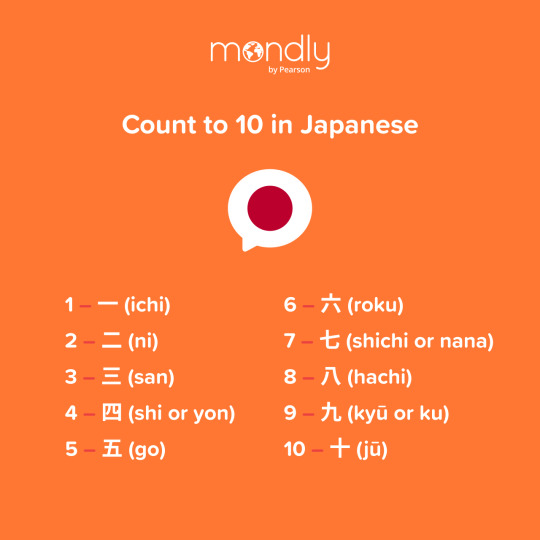
Japanese numbers are easy peasy Japanesey. 🎇 🇯🇵
#mondly#languagelearning#japanese#learnjapanese#japaneselesson#japaneseapp#japaneseforbeginners#japaneselanguage#japaneseteacher#japaneseclass#japaneselearning#japaneseonline#japanesenumbers#nana#hachi
2 notes
·
View notes
Photo

必勝[certain victory]2日目で納得して印を押す。祈りを込めて孫息子に届けます。#calligraphy #japaneselanguage #japaneseculture #japan #japanesecalligraphy #victory #必勝祈願 #必勝 #praying #peacefulmind #artstudio #artoftheday #inkart #inkdrawing #powerful (Yokohama City Japan) https://www.instagram.com/p/Cny8GMYPNW8/?igshid=NGJjMDIxMWI=
#calligraphy#japaneselanguage#japaneseculture#japan#japanesecalligraphy#victory#必勝祈願#必勝#praying#peacefulmind#artstudio#artoftheday#inkart#inkdrawing#powerful
4 notes
·
View notes